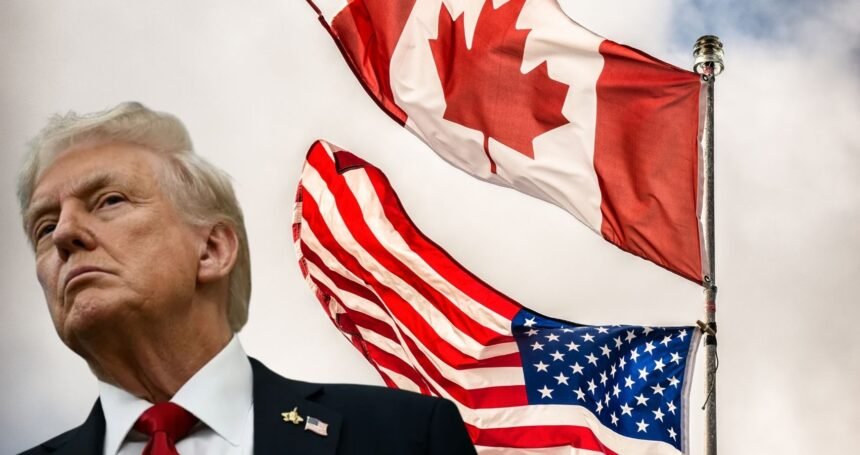President Donald Trump said he is ending trade talks with Canada. This is a big step up in a fight that started when an Ontario TV ad used audio from Ronald Reagan to argue against tariffs.
The stop, which was announced late Thursday, adds to the uncertainty about North American supply chains and the future of consumer prices.
Canadian goods have had to pay high tariffs, including sector specific taxes on metals that affect many factory floors.
Experts say that steel and aluminium are used in everything from cars to dishwashers. If talks on ice go on for a long time, prices are likely to go up as producers pass on their costs.
The first thing that will probably happen to consumers is that prices will go up in cars, car parts, and big home appliances, where metal inputs are common and cross-border sourcing is common.
Most of the time, U.S. manufacturers eat the extra costs of materials at first, then change their prices when contracts end.
Mark Carney, the Prime Minister of Canada, said the country is ready to start talking again.
Doug Ford, the Premier of Ontario, said the ad campaign would stop for a while to make room for the talks to start again that means that both sides want to get off the road, even though the talk is still hot.
The United States is Canada’s main export market, and a large part of U.S. imports come from Canada.
A lot of USMCA compliant goods are still exempt from the current tariff system, but if the process doesn’t move forward, the headline duties could stay in place, making it harder for companies to plan for next year’s USMCA review.
Steel and aluminium are used by appliance makers to make cases and parts.
Manufacturers tend to cut back on promotions, extend delivery times, or push through small list-price increases if they don’t see a way to get relief in the near future.
Some people may use up stockpiles built up earlier in the year, which can slow down price changes, but the cushion won’t last forever.
Others can switch to different suppliers, but in real life, it’s not easy to rewire the North American auto and white goods ecosystems on short notice.
Policy signals from Ottawa suggest that they are looking for some space while the dispute plays out. Earlier this fall, Carney put the EV mandate on hold, saying it was a balance between trade, jobs, and affordability.
Businesses in British Columbia have already had to deal with higher costs because of problems at the border. Now, Canada is offering a $1 billion tariff relief programme for small businesses in B.C.
Those steps show how much political pressure there is to protect consumers while still keeping lines of communication open with Washington.
The ad that caused the fight used lines from Reagan to say that tariffs hurt workers and consumers.
The Reagan Presidential Foundation said the editing was bad, and the White House said Canadian officials were playing politics.
No matter how the creative dispute is settled, the real test is whether both governments can calm down quickly enough to stop factory gate costs from affecting final prices.




















